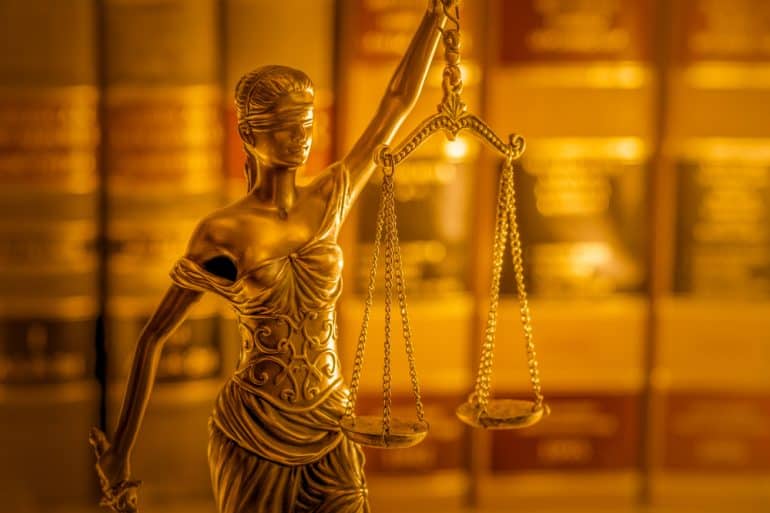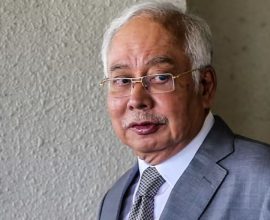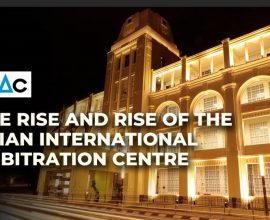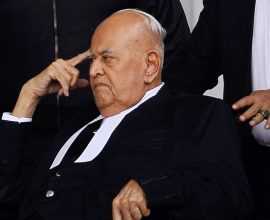What is the difference between power and jurisdiction?
What do these two words mean? Are they interchangeable? Or are they different? If so, how?
It is a question that has bothered lawyers and judges alike for a long time.
To add to the confusion, these words are sometimes used interchangeably.
In 1937, Chief Justice Warren was asked to describe the difference between two legal words: ‘cases’ and ‘controversies.’
He said,
‘Those two words have an iceberg quality, containing beneath their surface … submerged complexities.’1 Aetna Life Insurance Co v. Haworth, 300 U.S. 229, 240-241
Warren’s sentiments also describe the painful problem between the words ‘power’, and ‘jurisdiction.’
Although these two words are said to mean two different things,2 Lee Lee Cheng (f) v. Seow Peng Kwang [CA] [1960] 26 MLJ 1, at p.3. See also Isman bin Osman v. Government of Malaysia (1960) 26 MLJ 143 at p.146, paragraph F to H (left) the judges themselves have not been lucid in differentiating between the two.
Judges are often heard to say that it is entirely possible for a judge to have both jurisdiction and power; or have jurisdiction but no power, or neither.
Do the following sentences make sense to you?
‘Jurisdiction’ is ‘the scope or authority over a subject matter which the court may deal with’, or
‘The court may then exercise its power in relation and pursuant to that jurisdiction.’
Do you understand these definitions?3 Munawar Ahmad Anees v. Public Prosecutor [2009] 2 MLJ 1, at p. 9 paragraph [15], quoting Lee Lee Cheng, supra
If a lawyer explained to you, that,‘There is a distinction between ‘jurisdiction’ and ‘powers’ – what would you understand?4 see the Federal Court case of View Esteem Sdn Bhd v. Bina Puri Holdings Bhd [2018] 2 MLJ 22 at p. 41, paragraph [52]
On occasion, even the House of Lords has complained about this confusion.5Anisminic Ltd v. Foreign Compensation Commission [1969] 2 AC 147 at p.171 [1969] 1 All ER 208 at p. 213; [1969] 2 WLR 168 at 170 cited by the Federal Court in Kathiravelu Ganesan & Anor v. Kojasa Holdings Bhd [1997]3 CLJ 777 at p.791, infra
You need a simpler explanation.
Let us fall back on some non-legal examples to see if we can understand the concept behind these two words.
The case of the three umpires
Suppose John, Jane and Thomas are three friends: and suppose they are internationally accredited referees for different kind of sports.
John is a FIFA qualified soccer referee.
So also Jane.
Thomas is a world-class umpire for ice hockey.
All of them have front seat tickets to witness the World Cup Soccer Tournament.
FIFA has given John the privilege to referee the soccer match between Brazil and Argentina.
And FIFA has appointed Jane to umpire the game between England and Ireland next week.
Thomas, being an ice-hockey umpire, has neither jurisdiction nor power to umpire the Brazil v. Argentina match. He cannot run into the field, whistle in hand, and make rulings on any infringement taking place at the pitch.
So also Jane.
They have neither jurisdiction nor power to umpire the Brazil v. Argentina game.
So also, when Thomas umpires the semi-finals of the Ice Hockey World Championships game between Canada and Sweden, neither John nor Jane have jurisdiction, or power, to interfere in his decisions.
That explains what jurisdiction is.
What about power?
Return to the Brazil v Argentina game.
During the game, a Brazilian player brings down an Argentinian player. This occurs at the centre of the field. Because of the force of the tackle, the Argentinian player has sustained a bone fracture. Can John award a penalty against the Brazilian team?
John has the jurisdiction to rule that there has been an infringement.
However, John cannot punish that infringement by awarding a penalty against Brazil.
John has jurisdiction to penalise the player by, e.g., by seeing him off the pitch, but he has no ‘power’ to order a penalty.
Soccer rules do not allow it.
Again, it is entirely possible for John to have both jurisdiction and power, and yet be unable to punish any one team. Not every serious infraction within a penalty box deserves a penalty. It depends on who is at fault.
Suppose an Argentinian player has caused a serious infringement within the Brazilian penalty box. John has the power to punish the Argentinian team (e.g. by awarding a free kick against the Argentinian team).
But he cannot award a penalty, whether against Argentina or Brazil. The rules do not allow it. John ha no such power.
We thus see that it is the soccer rules that determine how John can exercise his powers.
Power, therefore, is a consequence of not only ‘having jurisdiction’ (John’s right to referee) but the exercise of any such power depends on whether he has the power to do so: and this depends on whether the rules allow it.
These examples, if extrapolated, show how courts of law work within the twin frameworks of jurisdiction and power.
First things first…
Now, a court, even if it has jurisdiction to determine a dispute, cannot pronounce any judgment upon it, unless the parties to the dispute bring it before the court for a decision.6Muskrat v. United States, 219 U.S. 346, 356 (1911)
Second, a court cannot exercise its power without jurisdiction. They go hand in hand.7See the Federal Court case of Munawar Ahmad Anees, supra, at p.9 paragraph [15]. This is why it has been said that, ‘jurisdiction’ must take its colour from its context.’ 8 Kathiravelu Ganesan & Anor v. Kojasa Holdings Bhd [1997]3 CLJ 777 at p.791 at paragraph ‘e’ to ‘g’.
Types of Jurisdiction
The law differentiates between four types of jurisdiction: ‘Subject matter’, ‘Territorial’, ‘Quantum’, and ‘Relief Jurisdictions’, respectively.
Subject Matter Jurisdiction
Take divorce cases, for example.
Only the High Court can deal with divorce matters.9Sec. 24 of the Courts of Judicature Act 1964
The subordinate courts have no such power.10 By ‘subordinate courts,’ is meant the Magistrates Courts and the Sessions Court: see Sec. 3(2) Subordinates Courts Act.
This is called, ‘subject-matter jurisdiction.’
Only some courts can hear certain kinds of dispute.
If there are two courts next to each other, and if, in one, a judge is in the midst of hearing a commercial dispute, a second judge in a civil court three doors away, cannot have the first case brought before him.
Although he has jurisdiction to hear civil and commercial disputes, the second judge cannot hear a case not assigned to him.
This is a case just like how Jane could not interfere in John’s refereeing during the Brazil v. Argentina match.
In this example, the first judge has jurisdiction, but not power, to determine a dispute that had been assigned to another judge.
Quantum jurisdiction
A magistrate court cannot hear a civil dispute that exceeds the sum of RM100,000.00 in value.11Sec. 90 of the Subordinate Courts Act 1948.
A Sessions Court is authorised to hear disputes that have a monetary value of up to RM1.0 million.12Sec. 65(1)(b) of the Subordinate Courts Act 1948
However, there is an exception: in personal injury or fatal accidents cases, a Sessions Court can make an award for any sum.13Sec. 65(1)(a) of the Subordinate Courts Act 1948.
Thus, where a magistrate court hears a building contractor’s dispute, then the maximum amount the law allows the magistrate to award is RM100,000.00.
If the value of that dispute exceeds RM100,000.00 but is less than RM1.0 Million, then the parties have to take it to the Sessions Court.
For disputes that are higher than RM1.0 million, the parties have to file the case in the High Court – that court can award any sum – running into the billions of ringgit.
The exception to the Quantum Jurisdiction rule
However, the parties to a civil suit – in a building contract dispute, e.g. – can agree that even if the award were to exceed RM50 million, a Sessions Court judge can hear the dispute.
The parties can ‘confer jurisdiction by consent’ because Parliament has allowed it.14 Sec. 65(3) of the Subordinate Courts Act 1948.
This is the only exception to the quantum jurisdiction rule.
Consent may not confer jurisdiction
Yet a quarrelling wife and husband cannot turn up at a magistrate court and demand for a divorce.
Nor can they agree to ‘grant power’ to the magistrate to rule on their marriage dispute. The law does not allow it.
Thus the magistrate has neither the jurisdiction, nor power, to hear this kind of dispute.
Territorial Jurisdiction
If two Sarawakians enter into a contract in Kuching, and one of them breaks the contract, the innocent party cannot sue the other party at Kuala Lumpur. An act of Parliament says this cannot be done. A suit has to be filed at Kuching.15Sec.23, Courts of Judicature Act 196415. Relief Jurisdiction ‘Relief’ means ‘remedy’. Suppose you lost an arm in a car accident. You may sue the negligent driver and ask for ‘relief’. You cannot ask for the return of your arm; that no court can give. It can only give you a remedy in the form of a monetary award. This is what ‘relief’ means.
We now go deeper into ‘iceberg’ issues.
A court can only grant a remedy if it has both jurisdiction and power to do that.16Anisminic, and Kathiravelu, supra
We saw this difference between the referee John, and the ice-hockey umpire Thomas, above.
For instance, a litigant cannot ask a magistrate court to grant an injunction – because the law does not allow it.
But one may ask the Sessions Court or the High Court to do so.17Sec.65(5)(a) of the Subordinate Courts Act 1948
Which takes us to the case of Tan Sri Dato’ Tajuddin Ramli v Pengurusan Danaharta Nasional Bhd & Ors.18[2002] 5 MLJ 720
After the worldwide economic crisis in 1996, Parliament passed the controversial ‘Danaharta Act’ in 1996.19Pengurusan Danaharta Nasional Bhd Act 1998 It was copied off an Indian statute, called ‘The Sick Industrial Companies Act’, (SICA).20 The Sick Industrial Companies Act (SICA). See https://www.investopedia.com/terms/s/sick-industrial-companies-act-sica.asp SICA was enacted to detect sick or potentially sick Indian companies which owned industrial undertakings. The SICA made provisions for their revival, if possible, or their closure, if not.
SICA aimed to release investments locked up in sick companies for productive use elsewhere.
In contrast to SICA, the 1998 Malaysian Act gave Danaharta strange – and questionably, wide – powers.
For a time the courts accepted Danaharta’s powers as gospel truth.
One High Court judge ruled that the 1998 Act had been enacted, ‘for the sole purpose of saving our then collapsing Malaysian economy in the aftermath of the 1997 financial crisis.’
The Act did not achieve its avowed purpose. The legal carte blanc given to Danaharta began to be increasingly questioned. There were sound reasons for this.
Danaharta could take over liabilities from the financial institutions. It could bully debtors into submission. Some long-established legal defences could not be raised against Danaharta or its officers.
For example, the 1998 Act had an odd provision that prevented anyone taking any injunction order against Danaharta or its servants.
Sec 72 of the Act said that ‘notwithstanding any law,’ a court could not grant any orders against Danaharta, or its servants.
But how does one challenge a law enacted by Parliament, particularly when courts regarded statutes as sacrosanct and inviolable?
Practising lawyers saw all this as being unconstitutional. They lay in wait for an opportunity to test the Act.
Then along came a businessman called Tajuddin Ramli.
Jurisdiction, powers, the prophet Job and Voldemort …
Tajuddin had taken various business loans for his fleet of companies, some of which he had defaulted.
Danaharta took over those loans. It restructured Tajuddin’s liabilities.
Tajuddin could not satisfy Danaharta’s terms of repayment.
Eventually, Tajuddin and Danaharta entered into a settlement agreement, but Tajuddin struggled with interest repayments.
Danaharta demanded Tajuddin repay overdue interest.
Tajuddin thought Danaharta could not ask for the kind of interest they did.
He resolved to stop Danaharta from enforcing its rights under the settlement agreement. He asked the court to restrain Danaharta with an injunction.
The judge, Vincent Ng J, ruled that sec. 72 did not breach the Federal Constitution.21See page 741, paragraph E. See also Tengku Haji Jaafar v Government of the State of Pahang (1978) 2 MLJ 105, and Nanthakumaran v Jaffnese Co-operative Housing Society Ltd & Ors [1980] 1 MLJ 114
How the judge said it is fascinating. He referred to a verse in the Bible.
The Old Testament speaks of the prophet Job.22‘Ayyub’ in Arabic He has endured terrible privation in obeying God. Despite his anguish, Job declares his faith, his resignation and obedience, in these words:
‘Naked came I out of my mother’s womb, and naked shall I return thither: the Lord gave, and the Lord hath taken away.’23 Job 1:21(KJV)
You would be interested to know that a sinister version of this quote appears in the movie ‘Harry Potter and the Goblet of Fire’, when the evil Lord Voldermort says the same thing.
This is what Vincent Ng J said:
‘What a statute can give, a statute can take away, or limit.’24Vincent J cited sec. 29 of the Government Proceedings Act 1956, sec.40(1) of the Societies Act, and sec. 72 of the Danaharta Act as examples of Parliament’s intention … to take away such injunctive power.’ See page 741, paragraph H Sounds familiar?
And yet the Constitution can still stop the courts…
In Kekatong Sdn Bhd v Danaharta Urus Sdn Bhd,25 [2003] 3 MLJ 1. the Court of Appeal criticised this view.
Gopal Sri Ram JCA held that sec. 72 was unconstitutional, for it had breached the equality provision in Article 8(1) of the Federal Constitution. The court ruled that an interlocutory injunction could be granted against Danahrta.
The Court of Appeal pointed out that sec. 29 of the Government Proceedings Act merely prohibited ‘permanent injunctions’ and not ‘temporary injunctions’.26In England, sec. 21 of the Crown Proceedings Act (which mirrored sec. 29 of the Malaysian Government Proceedings Act), did prevent a court from granting an interlocutory injunction. 27See Romer J in Underhill v. Ministry of Food [1950] 1 All ER 593. Similar reasoning was applied against sec. 54 (d) of the Specific Relief Act 1950 – which was aimed at prohibiting any permanent injunctions. 28 See also p.25 of the judgement at paragraph C. The Court of Appeal referred to Article 121 which provided that the High Court ‘shall have such jurisdiction and powers as may be conferred by or under Federal law.’ The CA ruled that ‘it is axiomatic that the ‘Federal law’ in the article refers to a valid federal law. 29See also Marbury v. Madison (1803) 1 Cranch 137. The CA in Kekatong ruled that it was ‘wrong to assume that the power to grant an injunction is derived from statute.’ It held that the High Court, ‘as a superior Court of Record has inherent jurisdiction to grant injunctions, inherited from the old Court of Chancery which itself issued injunctions pursuant to its inherent power (see Row on Injunctions seventh edition, pp. 5-6).’ 30See also p. 26 of the judgement, paragraphs B to H. The court distinguished between the words ‘power’ and the word ‘jurisdiction’. See p.26, paragraph H to I
Into the depths of the iceberg with the 1948 Sedition Act …
Some 15 years later, in January 2018, Dato Seri Gopal Sri Ram, the judge who had delivered the decision in Kekatong, spoke of the Sedition Act 1948.31During the opening of the Selangor Bar’s new auditorium at Shah Alam, on January 19, 2018
The British government had enacted the Sedition Act 1948 in Malaya. This was before Malaysia’s independence. The Constitution defines any written law enacted before Merdeka as ‘existing law’.32Article 162
Thus, under the Constitution, the Sedition Act is an ‘existing law.’
Under article 162, all ‘existing laws’ were to ‘… continue in force on and after Merdeka Day,… subject to any amendments made by federal or state law.’
The Constitution limits pre-Independence law
Art. 162(6) limits pre-Merdeka law in certain ways.
It states that,
‘ …any court … applying the provision of any existing law … after Merdeka Day… may apply it with such modifications … to bring it into accord with the provisions of this Constitution.’
Art. 162(7) defines the word ‘modification’ as ‘amendment, adaptation and repeal.’
Thus where a court exercises any powers under a pre-Merdeka law, the court can, in employing its constitutional powers of ‘repeal’, go so far as to rule that the pre-Merdeka law as having been ‘repealed’ – i.e. as American jurists are wont to call it, it was ‘unconstitutional’ – and thus of no legal effect.
The Sedition Act 1948 cannot be enforced
Gopal Sri Ram argued that the Sedition Act 1948 could, ‘not be enforced.’
He pointed to Article 10(1) of the Constitution which guarantees freedom of speech.
However, Art 10(1) was cut down by Art 10(2). That clause stipulated that Parliament (by a fresh Act) could limit the right of free speech. Art. 10(2) permitted Parliament to enact,
‘… such restrictions as it deems necessary or expedient in the interest of the security of the Federation.’
So, although the right to free speech was a ‘guaranteed right’, it was not an absolute right. It was ‘a delegated right’ because the delegation occurred in article 10(2).
Where a court is confronted by a pre-Merdeka law that deprived a person of a Constitutionally guaranteed right, then the court should ‘do its utmost to modify the law to bring it in accord with the Constitution,’ argued Sri Ram.
‘Frame it up in the Home Minister’s Home’
Gopal Sri Ram concluded with these words:
‘Therefore, the Sedition Act is very good. Excellent.
As I’ve said, the Home Minister can frame it up in his house.’
‘But he can’t prosecute people under it.’
‘You can do any gymnastics you want. You can do anything you like.’
‘But you cannot [convert] a pre-existing law [into] a law passed by Parliament. It is not a restriction imposed by [the later] Parliament.’
This example demonstrates that the judges acting under the Sedition Act had both jurisdiction and powers, but they could not act under it to limit free speech, for it was unconstitutional. They were obliged to strike it down.
Beyond Powers!
I leave you with a tongue-in-cheek anecdote related by an Australian judge, David Jackson J:
‘Sir Charles Powers, an early Justice of the High Court of Australia, was not highly regarded for his legal talents.’
‘During his term of office, other members of the court were said to complain that a relatively high proportion of the court’s work was within jurisdiction but “ultra vires – beyond Powers!” 33 Speech by the Honourable Judge David Jackson AM QC, ‘Jurisdiction and Power: The Language of the Law’, Emmanuel College, The University of Queensland, Emmanuel Papers, No.10 – August 2010
[The author expresses his gratitude to Ms KN Geetha, Mr. GS Saran, Mr. JP Kirat and Miss KP Kasturi for their assistance.]





